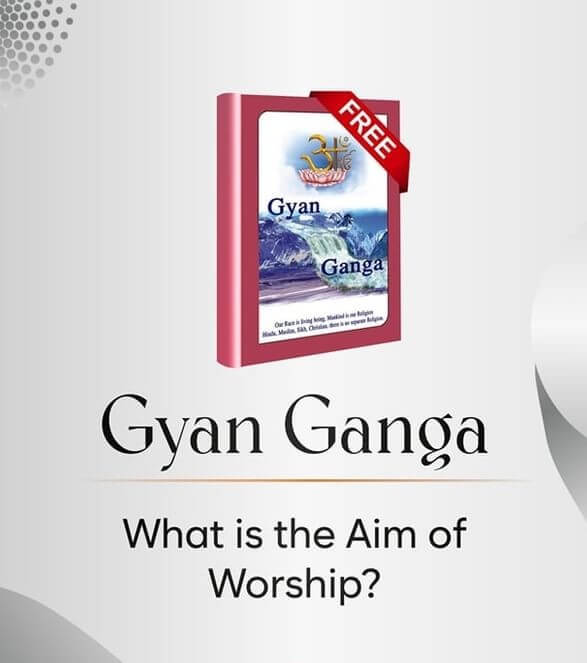Brahma Puran
The Mystery of the Sacred Puranas / Brahma Puran
Brahma Puran
Shri Brahma Puran
The narrator of the Brahma Puran is Shri Lomharshan Rishi Ji, also known as Soot Ji, a disciple of Shri Vyas Rishi.
Lomharshan Ji explains that the knowledge in the Puran was originally imparted by Shri Brahma Ji to sages like Daksh, and he is now retelling it.
Cosmic Creation and the Role of Shri Vishnu
In the chapter titled "Srishti ka Varnan" (Description of Creation) (page 277-279), it is mentioned that Shri Vishnu is the foundation of the universe and takes the forms of Brahma, Vishnu, and Shiv to carry out creation, preservation, and destruction.
The text also describes the unmanifested Prakriti, referred to as Pradhan, from which Purush created the world.
Narayan is depicted as the self-existent God who first created water, where He rested, thus earning the name Narayan. From the power released into the water, a golden egg emerged, and within it, Swayambhu Brahma Ji was born. After residing in the egg for a year, Brahma broke it, forming Dhoolok (the celestial city) and Bhoolok (Earth).
Brahma's anger gave rise to Rudra.
Fact
The knowledge provided by Rishi Lomharshan (Soot Ji) is based on hearsay (lokved) and is incomplete, as the speaker himself acknowledges having heard it from others.
For a more comprehensive understanding of the Shri Devi MahaPuran, Shri Shiv MahaPuran, Shrimad Bhagwad Gita, the four Vedas, and the true spiritual knowledge (Tatvgyan) given by Purna Parmatma, known as Swasam Ved or Kavir Vaani (Kabir Speech), one should refer to texts like Gahri Nazar Gita Mein, Parmeshwar Ka Saar Sandesh, Paribhasha Prabhu Ki, and Yatharth Gyan Prakash Mein.
KavirDev (God Kabir), appearing in Kalyug, imparted true knowledge to His special disciple, Shri Dharmdas Ji, which is detailed in the section "Creation of Nature" in this book Gyan Ganga.
Shri Parasar Ji mistakenly referred to Kaal/Brahm as ParBrahm and has also labeled Brahma and Vishnu as Anaadi (eternal) and Amar (immortal). This incorrect attribution of immortality to Brahm/Kaal, who does not undergo birth or death, reveals the limitations of the Rishi's understanding.
Kindly consider
The knowledge in Vishnu Puran was narrated by a Rishi based on hearsay (Lokved) and lacks a firm foundation. Similarly, the knowledge of Brahma Puran, conveyed by Shri Lomharshan Rishi, was based on what he heard from Daksh and other Rishis. Therefore, to fully understand Vishnu Puran and Brahma Puran, we must refer to Shri Devi Puran and Shri Shiv Puran, which were narrated by Shri Brahma Ji to his son Narad Ji and later written by Shri Vyas Ji.
The knowledge found in other Purans, such as Shri Devi Puran and Shri Shiv Puran, is more reliable because it came directly from Brahma Ji. To truly grasp these texts, we must also reference the Shrimad Bhagavad Gita and the four Vedas, as this knowledge was given directly by Kaal-form Brahm, the father of Brahma, Vishnu, and Shiv Ji.
To understand the essence of the Holy Vedas and Shrimad Bhagwad Gita, we must consult Swasam Ved (Sukshm Ved), given by the originator of Kaal-form Brahm, Param Akshar Brahm (KavirDev). This true knowledge was directly revealed by SatPurush through Kabir Vaani (Kabir Speech), as evidenced in Rigved Mandal 9 Sukt 96 Mantras 16 to 20.
Additionally, in Shrimad Bhagavad Gita, Brahm (Kaal) explains his own state, confirming this truth.
In Gita Chapter 15, Verse 18, Kaal-form Brahm declares himself to be superior to all beings within his twenty-one universes, whether they are perishable (in material form) or imperishable (in soul form). He acknowledges that, based on hearsay knowledge (Lokved), he is considered Purushottam (Supreme Being). However, he clarifies that the true Purushottam is someone other than Kshar Purush (Kaal) and Akshar Purush (ParBrahm). This Supreme Being, also referred to as Parmatma (God), is the one who enters the three worlds and nurtures and protects everyone. He is the Eternal Supreme God (as explained in Gita Chapter 15, Verses 16 and 17).
Brahm, the speaker of the Gita, admits that both he and Arjun have undergone multiple births, though Arjun is unaware of them (Gita Chapter 4, Verse 5 and Chapter 2, Verse 12). Furthermore, in Chapter 7, Verse 18, he refers to his own form of worship as inferior (Anuttamam). Therefore, in Chapter 18, Verse 62, Brahm advises Arjun to seek refuge in the Supreme God to attain eternal peace and reach Satlok, a realm that is never destroyed.
In Chapter 15, Verse 4, it is said that one should search for the Supreme State of Parmeshwar (Supreme God), after finding a Tatvdarshi (true spiritual knower, referenced in Chapter 4, Verse 34, and Chapter 15, Verse 1). This Supreme God is the origin of the entire world and sustains all. Even Brahm himself is in the refuge of this Aadi Purush Parmeshwar, and one should worship Him with full faith to achieve complete salvation.
← Vishnu Puran Shri Devi MahaPuran. →
